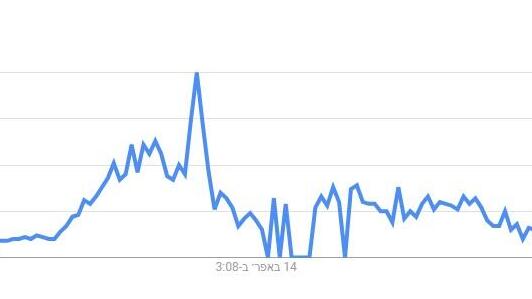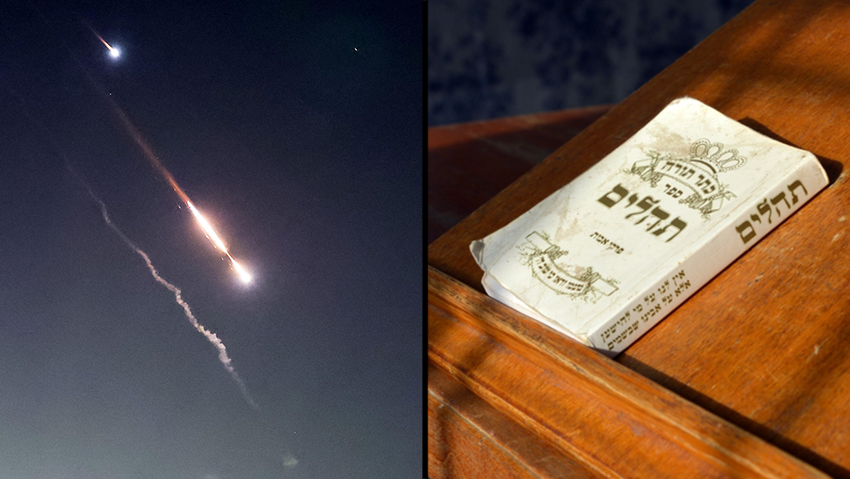Getting your Trinity Audio player ready...
During the Iranian attack on early Sunday, Google searches in Israel spiked with terms like "news" and "Iranian missile strike," with the most searched phrase being "Psalms."
The search word "Psalms" increased as news got out of the approaching swarms of Iranian drones and missiles, reaching its peak at 1:48 AM (Israel time), as sirens began sounding across Israel.
Many also searched for "Tehillim" spelled phonetically in Hebrew letters, indicative of a surge in people seeking solace and spiritual strength amid uncertainty. Additionally, searches for "Tikkun HaKlali," the ten Psalms associated with Rabbi Nachman of Breslov, also saw a rise in searches.
Despite Iran's assault, Israel's sophisticated defense systems, coupled with what some believe to be divine intervention, resulted in minimal damage. It's no surprise that in moments of fear, many turned to the Psalms, attributed to King David, seeking comfort and divine protection.
2 View gallery


A graph that shows the search word 'Psalms' peaking during the Iranian attack overnight
(Photo: Screenshot from Google Trends)
Why specifically turn to Psalms in times of crisis, amid a rich tapestry of biblical texts? Rabbi David Stav, head of the Tzohar Rabbinical Organization, explains: "The Psalms largely consist of expressions of gratitude for salvation and prayers for deliverance from distress. Few texts in the Bible address the plea for deliverance from pursuers as fervently as Psalms. In fact, much of our prayer liturgy is based on verses from Psalms, emphasizing its relevance in times of need."
In essence, when seeking solace in prayer during times of crisis, turning to the Psalms is both logical and deeply rooted in Jewish tradition.
RabbaI Stav says "that King David proclaimed that those who recite Psalms would be considered as if they had studied Torah. While Torah study is highly esteemed, there's a halacha prohibiting seeking healing through Torah, as Torah should be studied for the sake of learning, not for healing purposes. Maimonides and Rashba mentioned Psalms as a book utilized for healing purposes. In the past 200 years, Psalms received significant prominence, with people turning to it for even the slightest issue."
According to Kabbalah, Psalms should not be read at night but only during the daytime. However, Rabbi Stav clarifies that in cases of great necessity, Psalms can be recited at night. He concludes by expressing the beauty of reciting Psalms for salvation while also emphasizing the importance of gratitude. He suggests that those who recited Psalms during the night should also recite Psalm 100 or the prayer "Nishmat Kol Cha" (Soul of Every Living Being). Moreover, when expressing gratitude, one should direct it to God, the pilots, and the developers of the air defense systems.




